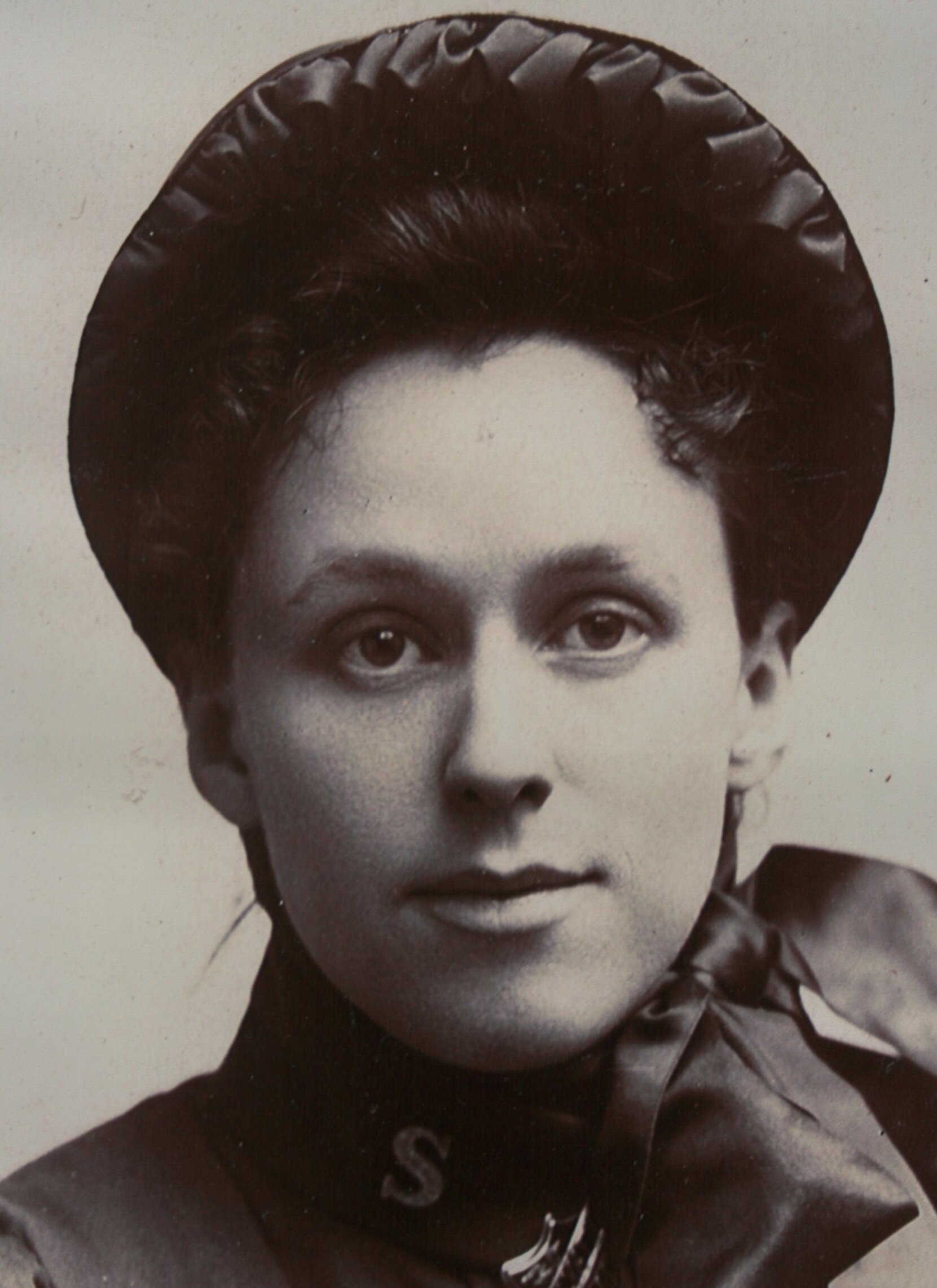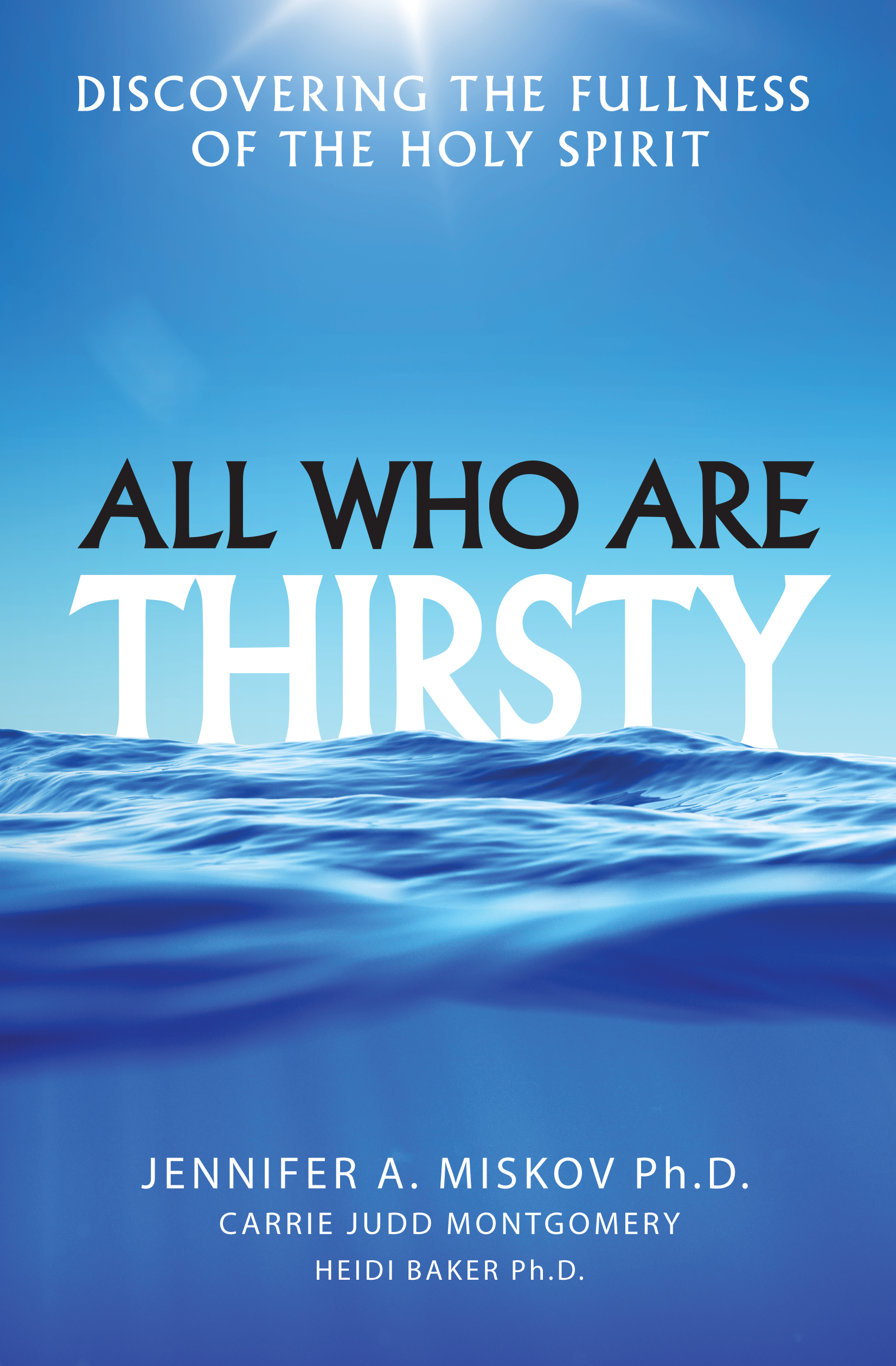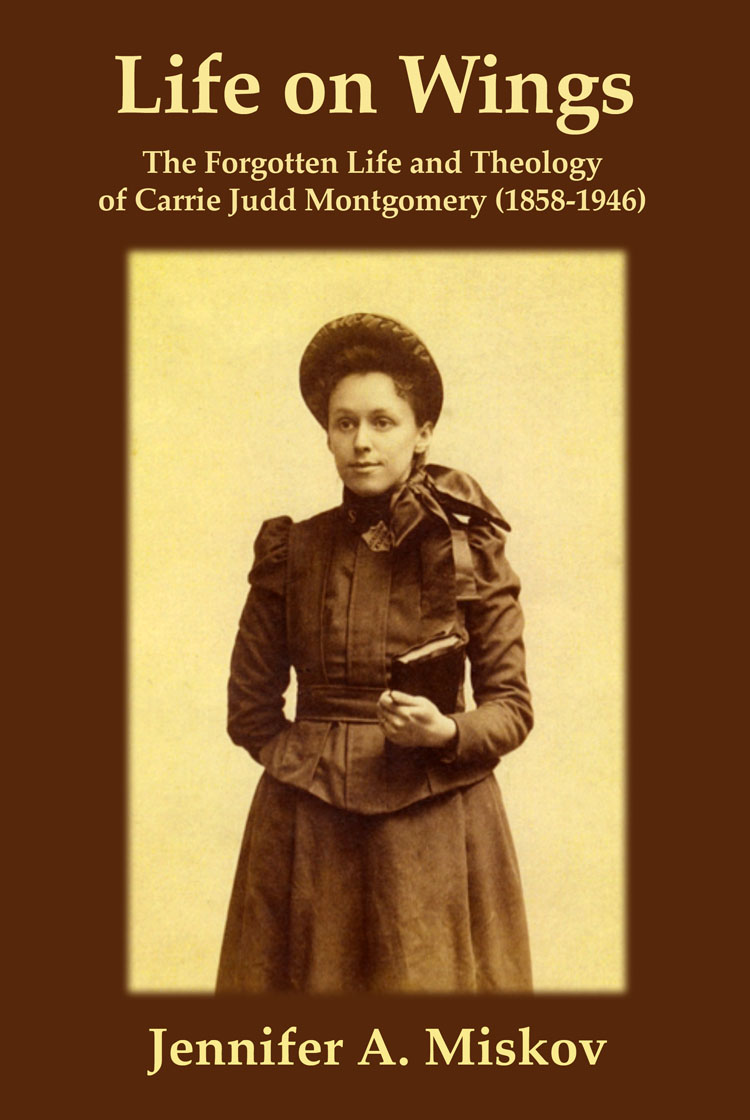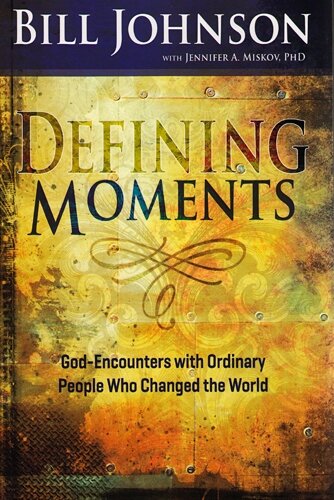CARRIE JUDD MONTGOMERY
by Jennifer A. Miskov, Ph.D.
GROWING UP
During the same year and in the same state as the revival of 1857-1858, Carrie Frances Judd entered the world. Carrie, the fourth of eight children, was born on April 8, 1858, and spent her early days in Buffalo, New York. During her childhood years, she lost two of her siblings to severe illnesses. Because of her own deteriorating health, at fifteen years old, her brother invited her to live with him in another area of New York which had a better climate.
During her time there, she worked for an editor of a health magazine. After a return home to help care for several sick in her family, she moved to another part of New York with the same brother. During her year stay, she started up a Sunday school with the neighborhood children. When she returned home, she was healthy enough to return to her own schooling.
THE FALL
One cold winter day in 1876 as she was walking to school, she slipped and fell hard on the icy ground. She continued to school that day but shortly after her health began to rapidly deteriorate. Soon after the accident, on January 6, 1877, Carrie found out that she had spinal fever. What “seemed to be tuberculosis of the spine” developed into “tuberculosis of the blood” which forced Carrie to give up school and her aspirations of becoming a school teacher.
Being “prostrated with spinal complaint…the trouble extended to all the large joints. Her hips, knees, and ankles could not be touched, even by herself without great suffering.” For over eleven months she could not even sit up on her own. She could not even handle light or much time with people. A small pillow under her head felt “like a block of stone.” Her days in bed grew into months and then years. At a time when those around her were expecting her death at any moment, even her mother allowing friends into her room to say their last goodbyes, her father came across a unique article in the local newspaper.
The article told of the account of Mrs. Edward Mix, a “colored woman” from Connecticut, being healed of tuberculosis through the prayers of Mr. Ethan Allan. Upon hearing this, Carrie asked her sister Eva to send Mrs. Mix a letter requesting healing prayer from her. To their surprise, the Judd family received a quick response from Mrs. Mix. The prayer found in James 5:15 was central to the letter as well as an encouragement to act in faith regardless of how she felt. In the letter was also a specific set apart time where both sides would pray at the same time for Carrie’s healing.
THE RISING
Even though no one showed up to Mrs. Mix’s regular prayer meeting that day due to poor weather, she and her husband prayed for Carrie nonetheless. During their set apart time of prayer, on February 26, 1879, Carrie engaged in a spiritual battle. Finally, she felt it was time to act in faith and get up out of bed. Unassisted, she walked over to the nearby chair. Her healing process was ignited from that day forward. By April of that same year, she was well enough to use the stairs and go outside to visit the neighbors. In the years that followed, she corresponded with Mrs. Mix. At one point Mrs. Mix even came to visit and they went out into the city to pray for healing of those who were sick.
HEALING HOMES
News of Carrie’s healing spread and she soon became the talk of the town. People heard of her story in newspapers and wrote letters to her asking if she was really healed. Many people came to her to hear of her story and to receive prayer. Her compassion was stirred and she opened up a room in her parent’s home to receive such people. Soon after, she decided to open up a healing home in Buffalo, New York in April, 1882. This was one of the first healing homes in New York and was used as a model for many future healing homes in the country.
WRITER
Carrie was also a prolific writer. Based on the prayer found in James 5 and her own healing experience, she wrote The Prayer of Faith (1880) to encourage others to embrace and take hold of their healing. This book was significant because it was among some of first prominent books written on the subject of divine healing in her time. In 1881, she also initiated a magazine called Triumphs of Faith which emphasized holiness and divine healing. She continued to write and edit this journal for over 60 years.
PREACHER
Carrie became an itinerant preacher and teacher and traveled internationally throughout her life to share her story of healing and encourage people in their faith. Her zeal to spread the somewhat unpopular message of divine healing at that time put her in the category of a radical evangelical. Through her close friendship with A.B. Simpson, she eventually became a part of the forming of the Christian and Missionary Alliance (C&MA). Simpson continually encouraged and created space for her to step out and share her story.
Carrie transcended denominational barriers as she shared her story, speaking at Baptist, Presbyterian, Episcopalian, Salvation Army, Alliance, and other gatherings. Not too long after the Civil War and in a time before Martin Luther King Jr. came to the scene, she also preached to African Americans. In 1889 Carrie experienced some persecution and even some churches shutting their doors to her, first because she was a woman preacher and second because she spoke to African Americans.
WEDDING BELLS AND CALIFORNIA
In 1890, Carrie married a successful business man named George S. Montgomery who was previously healed of diabetes and afterward had “consecrated himself to the Lord’s service.” He brought her from Buffalo, New York to Oakland, California. With her husband’s constant support and great provision of resources, she opened up an orphanage and a training center there.
The Montgomery’s also built The Home of Peace which is still there to this day. This was the first healing home on the West Coast and through Carrie’s move to California, she was one of the first early advocates of divine healing on the west side of the nation. In several histories of the Divine Healing Movement, Carrie is the only woman listed among the other key shapers in the movement of Charles Cullis, A.B. Simpson, A.J. Gordon, William E. Boardman, Andrew Murray, and other men. She and her husband also became honorary officers in the Salvation Army before the turn of the century.
THE PENTECOSTAL STAMP
When birth of American Pentecostalism arose through the Azusa Street Revival in California in 1906, Carrie, although hesitantly at first, eventually received her Spirit baptism experience (in 1908). Even at age 50 and having already been a successful minister, she was open to all that the Spirit had to offer. This experience deeply impacted her life and spirituality and the theme of Spirit baptism became integrated into her magazine and her teaching.
Because of her great reputation, she was used as a bridge between Evangelicals and Pentecostals. To the Evangelicals, she had a voice to introduce Spirit baptism to them without all the fanaticism and to the Pentecostals, she remained balanced and didn’t overemphasize the gift of tongues. By 1914, she was part of what would later be called the Assemblies of God.
Throughout her life, Carrie became personal friends with Charles Cullis, A.B. Simpson, William Booth, Minnie Abrams, Pandita Ramabai, Elizabeth Baxter, Maria Woodworth-Etter, William J. Seymour, Smith Wigglesworth, Aimee Semple McPherson, John G. Lake, and many other prominent Christian leaders in her time. She continued her ministry until her death on July 26, 1946 and was succeeded by her only child, Faith Berry.
INSPIRATION
Carrie continually gave away whatever she received from God. After her own healing, she taught others about healing and prayed for them to be made well. She later lived through the Pentecostal revival of the early 1900’s and was open what the Spirit wanted to do while remaining balanced in the midst of some fanaticism. After her Spirit baptism experience, she encouraged others towards the same fullness. Whenever she experienced something from God, she eagerly sought to help others receive the same.
Carrie remained faithful to her husband and to the Lord all the days of her life. She lived a full life based on total surrender to the Holy Spirit, discipline, unity in love, service, prayer, and faith. While Carrie made mistakes in her life like all people do, she serves as an inspiration not only for young people and for women to step out in faith against all odds, but for all people to live lives fully surrendered to the Holy Spirit, to be unified in love above all controversies, and to freely give away what has been freely received.
©Jennifer A. Miskov. This is part of an excerpt taken from Spirit Flood: Rebirth of Spirit Baptism for the 21st Century (In Light of the Azusa Street Revival and the Life of Carrie Judd Montgomery). To see the most comprehensive biography on Carrie’s life see Life on Wings: The Forgotten Life and Theology of Carrie Judd Montgomery. Pictures are used with permission of the Berry Family (Carrie's grandchildren). Please feel free to share this as long as there is a link back to this page and with proper copyright information used.








